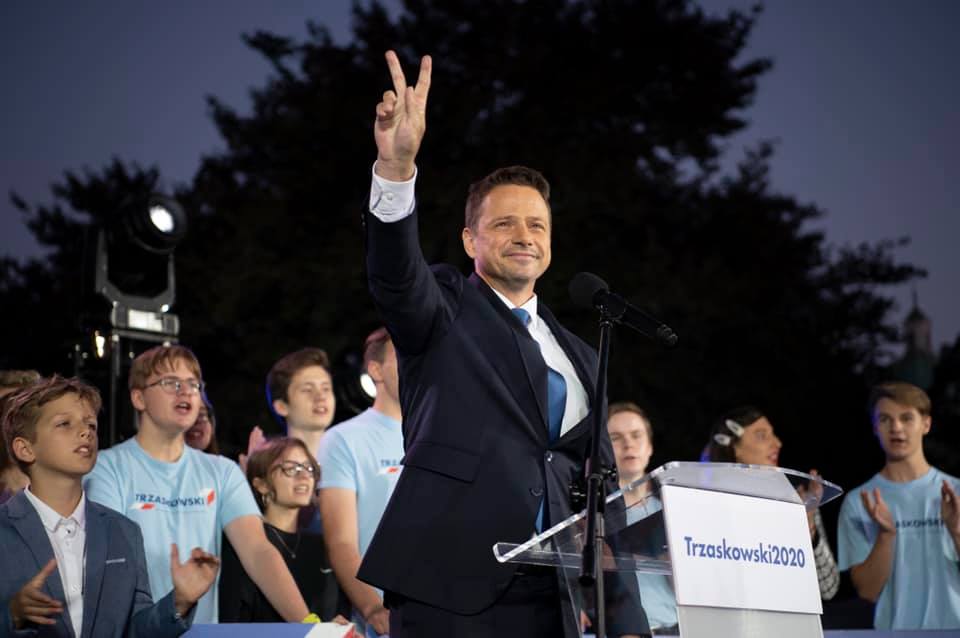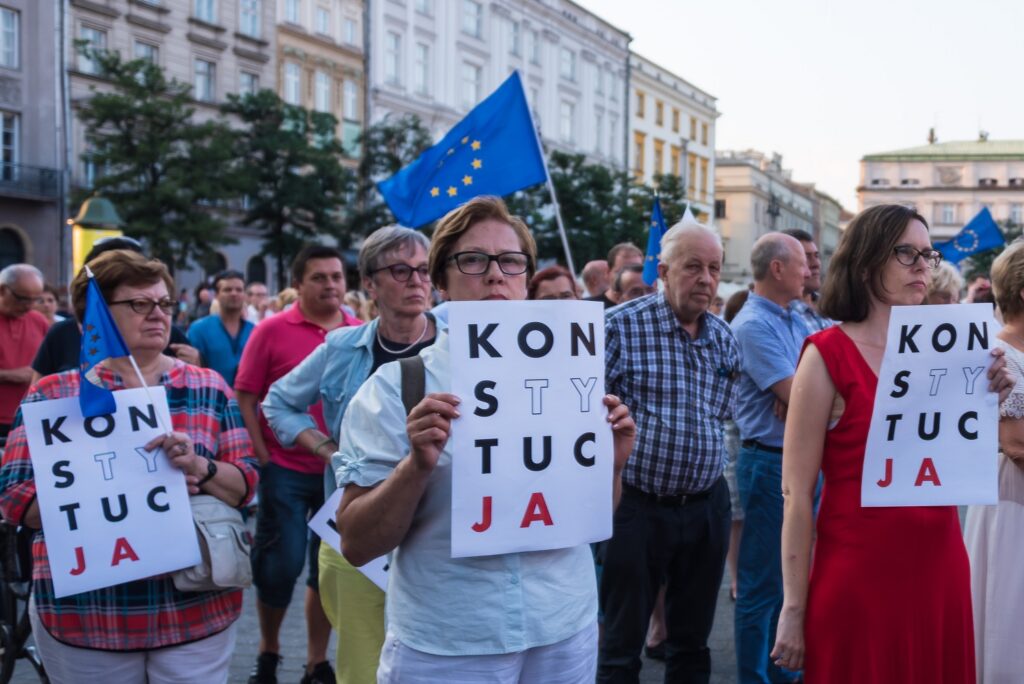After years of misrule under Poland’s Law and Justice party, a candidate representing the mainstream opposition almost managed to wrest back control of the presidency; in fact, anti-populists everywhere should see Rafał Trzaskowski’s near-miss campaign as a model for their own efforts, Jacek Rostowski, a former deputy prime minister of Poland, writes.
Although Warsaw mayor Rafał Trzaskowski did not come out on top in Poland’s [recent] presidential election, the result represents a turning point in European politics. The nationalist-populist tide has peaked. To paraphrase Winston Churchill’s famous quip following the second battle of El Alamein in 1942, this may not be the beginning of the end of contemporary authoritarian nationalism, but is at least the end of the beginning.
To be sure, Poland’s ruling Law and Justice (PiS) party will continue its conflict with the European Union over its efforts to undermine judicial independence and the rule of law at home. And PiS chairman Jarosław Kaczyński will doubtless pursue a takeover of Poland’s remaining independent media – the next big item on his authoritarian agenda. Moreover, spared from having to engage in political trench warfare with a new, hostile president, the PiS government will be able to keep frustrating the European project from within.
Nevertheless, anti-populists can take comfort in the fact that Polish president Andrzej Duda only narrowly managed to win re-election, despite having the full force of taxpayer-funded state media on his side. In fact, the Polish opposition’s surprisingly strong performance offers several lessons for all who still believe in constitutional democracy and the rule of law, regardless of where they live.
Build the broadest possible coalition
First, when challenging a populist government, it is critical to build the broadest possible coalition. Authoritarian populists in countries like Turkey and Hungary keep winning elections because their opponents are perpetually riven by internal conflicts. Anti-populists must put aside longstanding disagreements over issues of culture (LGBTQ rights and the like) and economic policy (such as protectionism and income redistribution) so that they can concentrate on the key task: ejecting populists from power. Failure to unite is what doomed the “Remain” cause in Britain last year.
Anti-populists also must learn to consolidate their base as quickly and effectively as populists do. Polarisation, the quintessential populist political tactic, has unfortunately become an intrinsic part of modern politics more generally. Understanding this is particularly important immediately after populists rise or return to power. At that point, anti-populist forces will face years of government smears, and are at risk of being demobilised by defeat.

“Positive messaging” is for the birds
The past few years have shown that when “they” go low, you have little choice but to go even lower. The impressive, viral “Mourning in America” ad issued by the Lincoln Project (“Never Trump” Republicans) in the United States is a good example of punching back effectively. Of course, countering populist messages is easier when the populists in power have proved to be more corrupt, incompetent and self-seeking than the so-called elites they replaced.
The fact is that for those seeking to dislodge populists from power, “positive messaging” is for the birds. So, too, are efforts to create an entirely new party or “core” in the anti-populist movement. The democratic opposition in Poland wasted several years trying out three new parties, each of which was supposed to represent a fresh, non-discredited, “positive” alternative to PiS. Yet in the end, it was Civic Platform (PO) – the party of Donald Tusk, a former Polish prime minister and president of the European Council – that almost wrested the presidency from Kaczyński’s grasp.
That said, a positive message during the last stretch of an electoral campaign, when power is still up for grabs, can be useful in broadening the anti-populist appeal and reaching independent voters. Often, as was the case in Poland, such an approach means putting a new generation of politicians front and centre. This is especially necessary when the main anti-populist opposition party is as well established as PO is.
Populists have difficulties governing effectively
Finally, it is important to remember that because populists naturally thrive on opposition, they usually have difficulties governing effectively. It is no coincidence that US president Donald Trump, British prime minister Boris Johnson and Russian president Vladimir Putin have all responded disastrously to the COVID-19 crisis. When politicians are focused on dominating the hourly news cycle and revelling in political theatre, there is little time left for crafting effective solutions to real-world problems.
The upshot is that, as long as the institutions of rule-based democracy can be maintained (especially in the case of a free, independent press), populist governments will be transitory. Moreover, in Poland, the PiS government will face a deep structural problem in the years ahead. While Duda won decisively among voters over the age of 50, Trzaskowski carried younger voters by a 22-point margin.
The only defence PiS has against the march of time is to shift ever further toward authoritarianism, and then to outright dictatorship. That will put it in direct conflict with the democracies of Western Europe, the EU and potentially the US after its own presidential election this November, provided that Trump’s opponents adapt the lessons of Trzaskowski’s near miss.
Copyright: Project Syndicate, 2020.
The opinions in this article are those of the author. Cover: A protest against Poland’s judicial reform. Photo by Külli Kittus/Unsplash.

